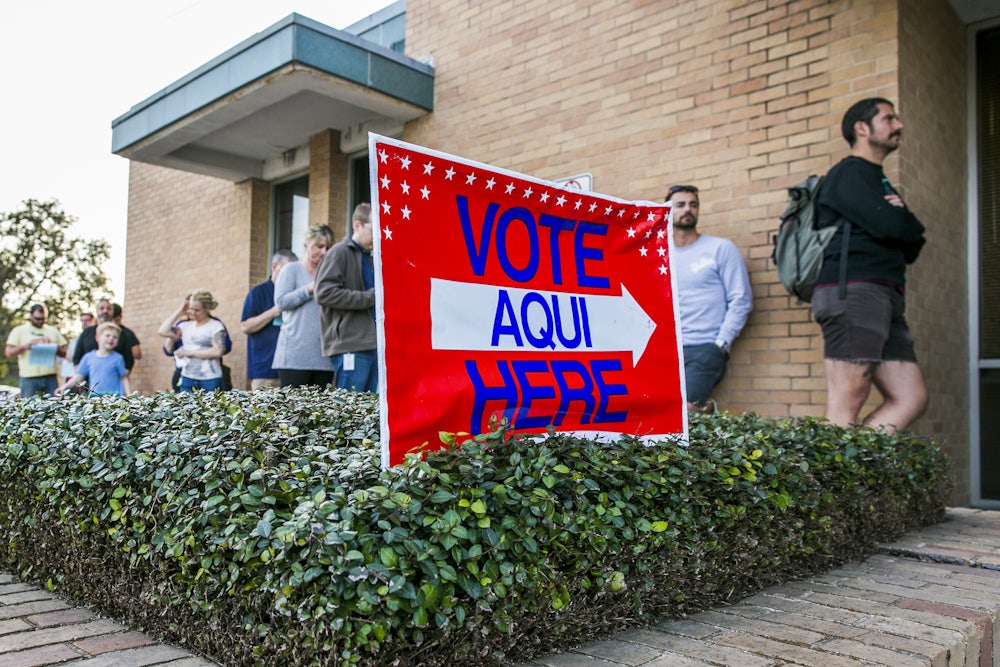A local judge handed down the sentence on Wednesday to Crystal Mason for illegally casting a provisional ballot during the 2016 election. At the time, Mason was on supervised release for her 2011 conviction in a tax-preparation fraud case, according to the Fort Worth Star-Telegram.
Mason said that court and prison officials didn’t tell her that she couldn’t vote after her release from prison for the 2011 conviction. When she couldn’t find her name on the voting rolls at her polling place in 2016, she said that an election worker told her to cast a provisional ballot instead. Mason signed an affidavit attesting that she was eligible to vote at the time, but told the judge she didn’t read it carefully because the worker was helping her through the process.
Why would the state separate a mother from her children for five years for what was likely a good-faith mistake? The Washington Post noted that the prosecution comes amid a broader crackdown on the purported threat of voter fraud by Texas Republicans. Governor Greg Abbott insisted in 2016 that fraud is “rampant” and that Texas was at the forefront of fighting it. The rhetoric doesn’t appear to have much basis in reality: The Texas Tribune reported that there was “scant evidence” to back the governor’s claim, with one study finding “fewer than three glitches per 1 million votes.”
Claims of persistent voter fraud also fuel Texas Republicans’ efforts to enact more stringent requirements for voters to cast a ballot. Ironically, those measures may have a far greater warping effect on Texas elections than the handful of voter-fraud cases found so far. A federal judge struck down the state’s controversial 2011 voter-ID law last August for its discriminatory impact on black and Hispanic voters. Election experts previously warned that roughly 600,000 otherwise eligible Texans wouldn’t be able to meet the ID requirement, many of whom come from disadvantaged backgrounds.
Texas is also one of 48 states that strips voting rights from residents who were convicted of felony offenses. Those rights are automatically restored once the person completes their sentence, including any parole or probation requirements attached to it. The Star-Telegram noted that criminal-justice reform groups estimate that over six million Americans, including almost 500,000 Texans, couldn’t cast a ballot in 2016 because of felon-disenfranchisement laws.
One of those Texans is Mason, who told the judge that she thought she had already repaid her debt to society for the 2011 conviction. “I owned up to that,” she said. “I took accountability for that. I would never do that again. I was happy enough to come home and see my daughter graduate. My son is about to graduate. Why would I jeopardize that?”
